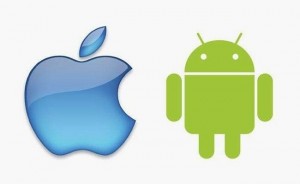Apple and Android new software updates have defaulted to a privacy setting restricting company or government access to personal information. On one hand, consumers may feel safe with this knowledge. Security, trust and privacy are qualities everyone wants in their phone. Despite this, FBI expresses major concerns in which I agree upon. With limited to no access of phone information, the FBI cannot gather needed data in a desperate time of need. For example, a tragic event such as a kidnapping would be untraceable and increasingly hard to solve.
Although Apple and Android were looking towards the benefits of the consumer, they did not think of the bigger picture or the heavy consequences. Essentially, neither Apple nor Android was trying to appeal to the market of criminals looking for the perfect phone to hide from the government. This article proves how businesses must choose their words carefully. With possibly a changed tone of voice and different wording, I believe the FBI would not have questioned Apple and Android. Giving an individual the power of with holding information from even the company itself is a risk.
However, at the end of the day, the number of people that will withhold from buying an apple or android cellular because of this new software update is miniscule. Such a privacy setting may not cause a huge riot, but it is definitely a new factor the consumers should know.
Picture taken from : http://digiwonk.wonderhowto.com/how-to/upload-your-photos-instagram-without-android-apple-device-0139986/
Original Article: http://www.huffingtonpost.ca/2014/09/26/james-comey-apple-android-encryption_n_5887294.html?utm_hp_ref=canada-business
